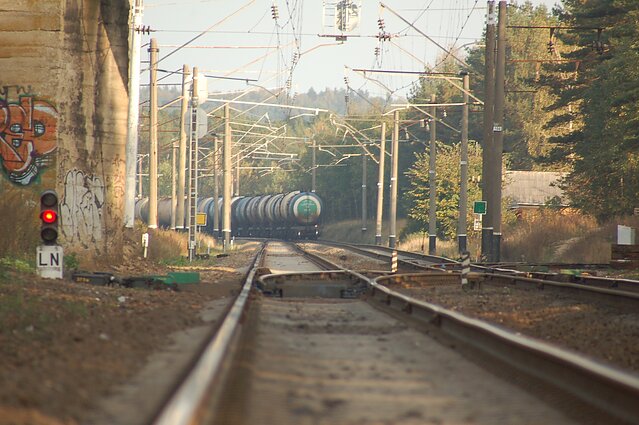
The EU announced new sanctions on Minsk last month, banning the transit of potash fertilizer, oil, and tobacco products. While supporting the sanctions, Lithuania was mindful of the effects on its economy. The EU sanctions target Belaruskali, one of the world’s largest potash fertilizer producers. The company uses the services of the Lithuanian port of Klaipėda and Lietuvos Geležinkeliai (Lithuanian Railways) to export its production. Sanctions will only affect contracts signed after June 25, therefore activities under the existing contracts will not be disrupted.

There was a risk that the restrictions would negatively impact the Lithuanian economy, since they would lead to losses for the port of Klaipėda and Lithuanian Railways. Nevertheless, President Gitanas Nausėda believes that cutting Belarus off from its main sources of revenue is the only way to get the country’s authoritarian leader Alexander Lukashenko to stop his brutal assault on the opposition. “We can’t impose sanctions and expect not to be affected by them. Yes, they will affect us, but that’s why they are also painful for the regime,” said Nausėda.
Calculations show that cutting economic ties with Belarus would lead to a drop of some 0.9% of Lithuania’s GDP over three years. Among the most affected companies would be the state-owned Lithuanian Railways, which stands to lose one fourth of its cargo and the Port of Klaipėda, whose cargo volumes would drop by about 30%.
The Transport Ministry will evaluate the sanction package before deciding on financial support for affected companies, said Prime Minister Ingrida Šimonytė. According to Transport Minister Marius Skuodis, sanctions restrict only about 20% of the volume of fertilizers transported via Lithuania. Thus 80% remains unaffected.
Preliminary calculations show that Lithuanian Railways would lose about 20 million euros without Belaruskali exports. Birių Krovinių Terminalas (Bulk Cargo Terminal), a company based in Klaipėda, handles some 10 million tons of Belaruskali fertilizers. In 2020, the transit company received over 91 million euros in revenue. Belaruskali also owns 30% of the company’s shares.
Barring EU market access to electricity produced in the Belarus nuclear power plant was also among the suggested measures in the sanction package, but it was not endorsed, said Jaroslav Neverovič, chief adviser to the president.
EU leaders also held back on imposing the toughest sanctions on Belarus – barring access to the ports of Baltic states altogether.
The Belarus Ministry of Foreign Affairs warned the EU that it would take countermeasures, should the EU continue imposing sanctions. It would not be the first time that eastern neighbours threaten Lithuania by prohibiting transit or export of goods, according to economist Marius Dubnikovas. Despite Belarus having a larger population, its economy is comparable in size to Lithuania’s. But Lithuania’s position is much stronger as it is a gateway to foreign currency for Belarus. Lukashenko may hope for support from Putin, but Belarus already owes Russia 8 billion dollars, and is yet to cover the loan of 10 billion dollars for the construction of the Astravyets nuclear power plant.
News from LRT.lt



























